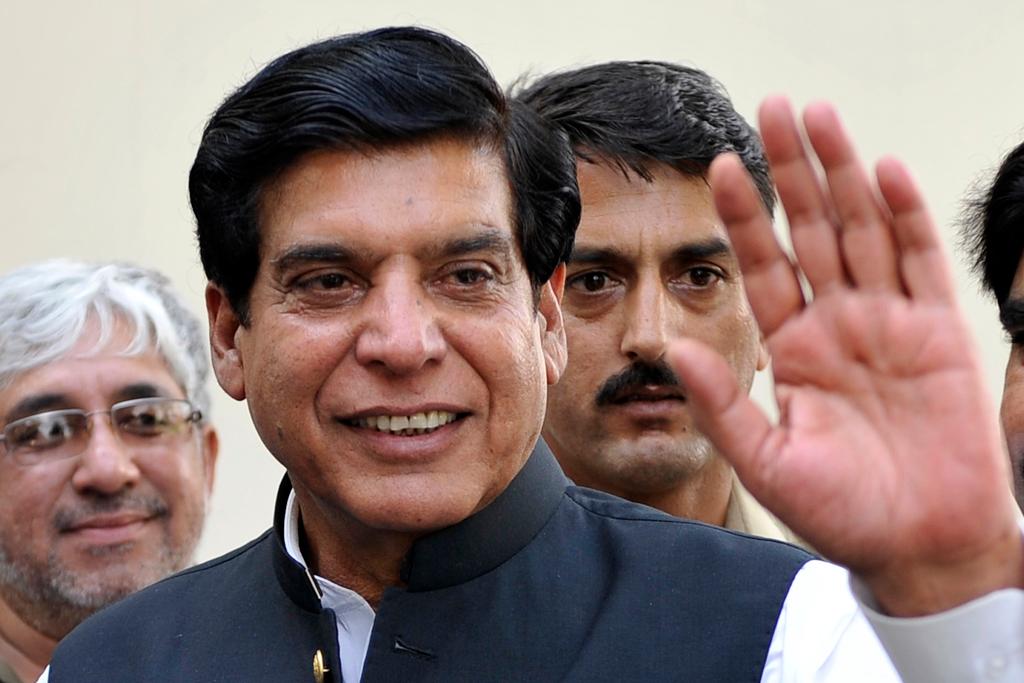Officer investigating Pakistani prime minister graft case is found dead
Raja Pervaiz Ashraf, from the ruling Pakistan People’s Party, was elected prime minister by Pakistan’s parliament in Islamabad on June 22, 2102.
A Pakistani investigator was found dead in a government-run hostel Friday, just days after being assigned to gather more evidence in a high-profile graft case involving Prime Minister Raja Pervez Ashraf.
The death of Kamran Faisal may have been a suicide, as the investigator's body was found hanging from a ceiling fan. He was reportedly "under extreme pressure" while working the case, said DAWN.com.
Read more from GlobalPost: Pakistan unrest spurs fear of military coup as tensions fray with India
Faisal was assistant director at Pakistan's National Accountability Bureau, wrote the Times of India, which added that police will establish a cause of death following an autopsy.
Earlier in the week, Pakistan's Supreme Court had ordered Ashraf's arrest in the Rental Power Projects graft case, a ruling that had shocked the nation.
Read more from GlobalPost: Pakistan's Supreme Court orders arrest of Prime Minister Raja Pervez Ashraf
But top police officials said Thursday that they lacked enough evidence to make any arrests in the high-profile case, GlobalPost's Mariya Karimjee reported from Karachi.
Speaking by phone, Karimjee said National Accountability Bureau chief Fasih Bokhari told the Supreme Court they would need to submit a written order for him to consider the prime minister's arrest.
Pakistan faces a critical juncture, with elections just two months away.
If the prime minister is deposed, Karimjee said, President Ashraf will not replace him before then.
"The president has said that if the prime minister is kicked out, he will not be finding a new prime minister" before March, she said.
Tensions are on the rise domestically following the return of Islamic cleric Tahirul Qadri to Pakistan a month ago. This week, thousands turned out to Qadri's protest, accusing the government of "corruption and incompetency," and demanding electoral reform before the general election.
Even in less sensitive times, however, gangland-style killings of political rivals is common in Karachi, according to Umair Javed, a Lahore-based political analyst.
"In Karachi … politics is overtly ethnic and incredibly violent," Javed told GlobalPost's senior correspondent Jason Overdorf.
Even so, Faisal's death has not generated much heat in Pakistan, he said.
"It's made it to the Express Tribune's masthead, and the comments underneath the article are obviously pointing fingers at the government," Javed said.
"If the issue is highlighted in the Urdu electronic and print media, it will certainly arouse a lot of suspicion given that the government's in a tight spot over the case this person was investigating."
Overdorf highlighted another recent case in which a journalist was murdered over a sensitive story.
In 2011, for instance, Asia Times Online journalist Saleem Shahzad was murdered after writing about alleged links between Al Qaeda and the Pakistani navy — a mystery that was never solved.
Mariya Karimjee contributed to reporting from Karachi. Jason Overdorf contributed reporting from New Delhi.
We want to hear your feedback so we can keep improving our website, theworld.org. Please fill out this quick survey and let us know your thoughts (your answers will be anonymous). Thanks for your time!
